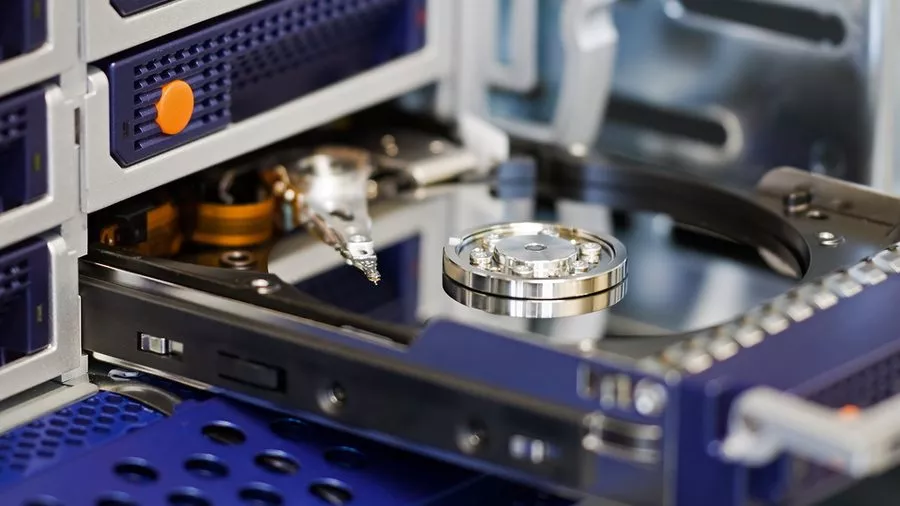Scientists Find A Way To Make Super Efficient “Quantum” Storage Drives

According to a study, by 2020 about 1.7 megabytes of data will be generated every second for every human on the earth. With such a humongous amount of data in circulation, we need storage drives that are highly efficient. However, the contemporary storage disk drives are based on decades-old technology.
A breakthrough research has been conducted by scientists from the U.S. Department of Energy’s Argonne National Laboratory, Oakland University in Michigan and Fudan University in China. Researchers have found a way to alter the way in which the data is stored in hard disk drives made from cobalt-iron alloy material.
Quantum Effect In Cobalt-Iron Alloy
Scientists have discovered a method to control the direction of spin of electrons in the alloy used in information storage devices. This paves the way for developing highly efficient disk drives. By reversing the direction in which an electron spins, scientists found that they get more control over magnetization. With this greater control, it is possible to store and retrieve information in a smaller space.
This could result in a highly energy efficient electric motor, magnetic barriers, and generators.
Damping Effect
The research revolves around the effect of damping in which the direction in which an electron spin decides how a material dissipates energy.
According to Axel Hoffmann who has authored the study in a recent issue of Physical Review Letters, “In technical terms, we discovered a sizable effect from magnetic damping in nanoscale layers of cobalt-iron alloy coated on one side of a magnesium oxide substrate.”
He adds, “By controlling the electron spin, magnetic damping dictates the rate of energy dissipation, controlling aspects of the magnetization.”
Surprising Discovery
This discovery comes as a surprise as scientists believed that cobalt-iron iron alloy used to make storage devices does not have a preferred direction in which its electron spins and thus, it does not possess any magnetization.
We hope that this discovery will lead to the development of storage devices with faster read/write speed and unprecedented energy efficiency.
Also Read: This Invisible Malware Is A Nightmare For Your Antivirus Software






